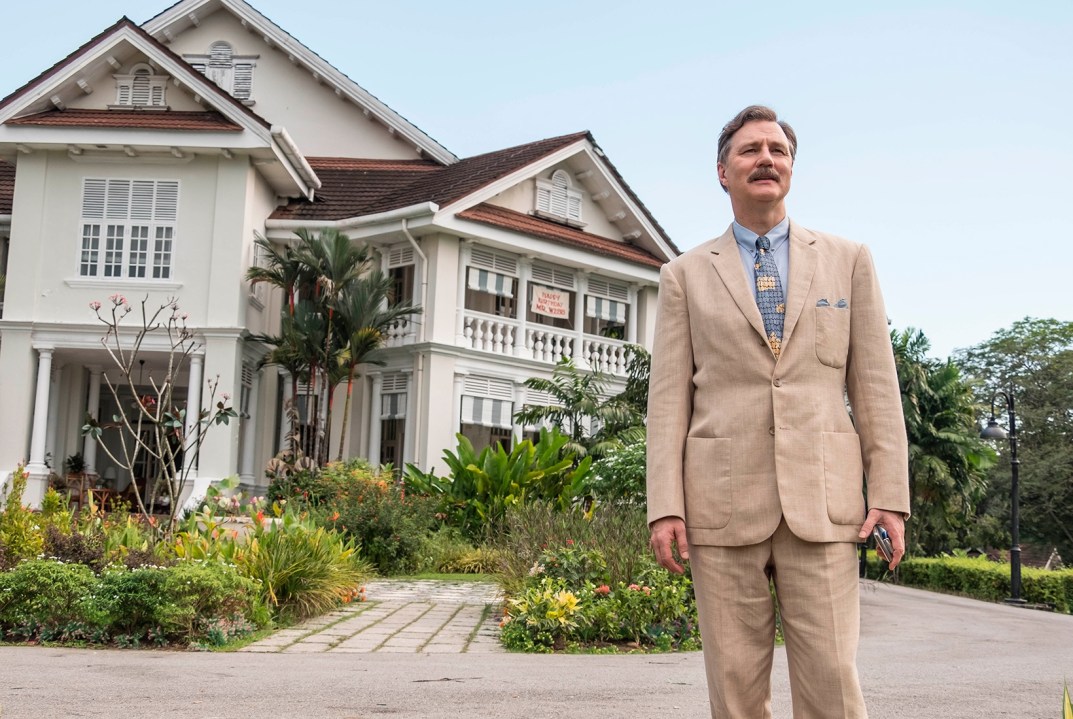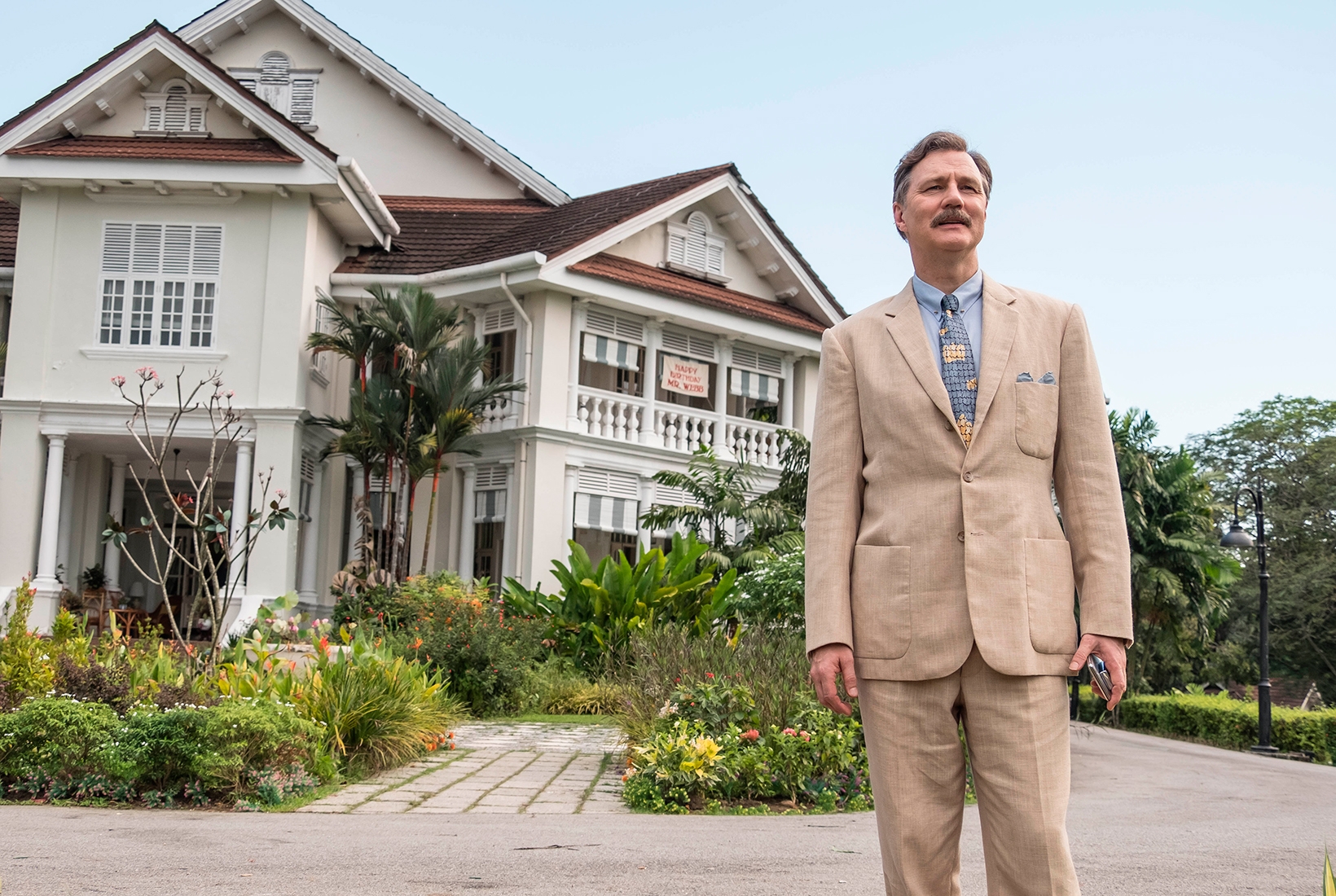‘Art is dead,’ declared Mark Steyn recently. He was referring to the new rules — copied from the Baftas — whereby to qualify for the Oscars your movie must have the correct quota of gay/ethnic minority/transgender/etc people. This, he argued, will lead to the kind of leaden, politicised, phoney art we associate with communist regimes in the Soviet era and which, not so long ago, we used to find eminently mockable.
If British and American producers want to lose money on TV shows and movies that no one wants to watch, then good luck to them. All that matters is that there’ll be enough brave dissenters out there to say: ‘Sod the awards. I’ll just make the kind of show that I want to make — and hope it strikes a chord with all those viewers out there who prefer not to be treated like idiots…’
This is the Sunday night TV many of us feared they’d never dare make any more
Two of the programmes I saw this week gave me great hope. First is The Singapore Grip, encouragingly given a grudging two-star review in the Guardian and condemned by the British East Asian advocacy organisation Beats for its ‘harmful non-representation’ of Asian characters and its ‘breezy and inconsequential’ depiction of a traumatic period in the country’s history. Yes! More of this, please!
As perhaps you’d expect from a satirical novel published in 1978 (by that Irish connoisseur of imperial humiliation J.G. Farrell), the series is indeed Anglo- and British colonial-centric. But why is that a problem? As dramatic material goes I can scarcely imagine a historical era more redolent of hubris and the thrilling revolution of fortune’s wheel than moneyed, pampered rubber planters in ‘impregnable’ early 1940s Singapore before and after the Japanese takeover. The cast — David Morrissey, Charles Dance, Elizabeth Tan, etc — is splendid, the colonial setting lavishly realised, and the plot warming up nicely as our proto-woke hero, played by Luke Treadaway, flies in with his modish left-wing views, all set to be appalled by the settlers’ attitudes. Then the Japanese dive bombers start coming in… This is the Sunday night TV many of us feared they’d never dare make any more.
Better still, though, is The Third Day, whose first episode starts out promisingly like a remake of the rustic pagan horror classic The Wicker Man, with Jude Law in the Edward Woodward role of the curious incomer increasingly out of his depth and the mysterious Essex island of Osea playing the role of the Scottish Summerisle.
Osea, which in real life is privately owned by Nigel Frieda, the pop impresario who founded the Sugababes, is an ideal setting for this hallucinogenic tale set amid a small community lost in time and cut off from civilisation — physically, as well as metaphorically — by the tides which mean that the island is only accessible when the snakey causeway leading up to it is not flooded.
Creator Dennis Kelly has had tremendous fun mining the rich seam of classic English horror cliché: villagers at once either creepily welcoming or suspicious or dumbly uncommunicative; weird, age-old rituals (in this case an oyster festival); hints at human sacrifice. Sometimes, it’s self-parodic almost to the point of hamminess — Paddy Considine’s grinning, born-again pub landlord could have come straight out of The League of Gentlemen — but this unevenness of tone is quite deliberate. By turns lyrical, comically odd and chilling — and woozily shot, sometimes in the manner of a pop video, by director Marc Munden — it’s designed to beguile, confuse and unsettle.
My only worry about it so far is the format. It’s set in three periods — summer, autumn and winter — the first and last being filmed as conventional drama, while the mid-section is going to be broadcast as what’s ominously described as a ‘live theatrical event’, full of improv, filmed on Osea island. Will this tricksiness mean we never get a handle on what really happened?
Quite possibly, yes. I’ve never quite forgiven Channel 4 for nixing Dennis Kelly’s brilliant, cultish Utopia (‘Where is Jessica Hyde?’) after just two seasons, meaning we never did get to the bottom of its spookily prophetic storyline about a labyrinthine global conspiracy involving a strain of flu. But perhaps Kelly never knew where it was going either, so we were just spared the disappointment, forever imagining what might have been if only they’d got round to making that third season. Apparently Amazon is making an American version, due sometime later this year. I hope it’s as good but fear it won’t be. There’s a warped, cussed dangerousness, tongue-in-cheekness and sickness about Kelly that might not translate.








Comments